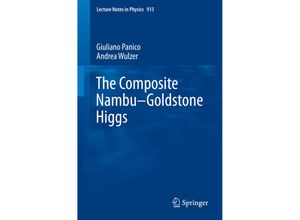The Hierarchy Problem is arguably the most important guiding principle concerning the extension
to high-energy scales of the Standard Model (SM) of Fundamental Interactions. Every scenario
for addressing this issue unavoidably predicts new physics in the TeV energy range which is
currently being probed directly by the LHC experimental program. Among the possible solutions
to the Hierarchy Problem the scenario of a composite Higgs boson is a very simple idea and a
rather plausible picture has emerged over the years by combining the following ingredients:
First the Higgs must be a (pseudo-) Nambu-Goldstone boson rather than a generic hadron of the
new strong sector. Second through the so-called 'partial compositeness' SM particles mix with
strong sector resonances with suitable quantum numbers so that they become a linear
combination of elementary and composite degrees of freedom. Recently general descriptions of
the Composite Higgs Scenario were developed which successfully capture the relevant features of
this theoretical framework in a largely model-independent way. The present book provides a
concise and illustrative introduction to the subject for a broad audience of graduate students
and non-specialist researchers in the fields of particle nuclear and gravitational physics.



